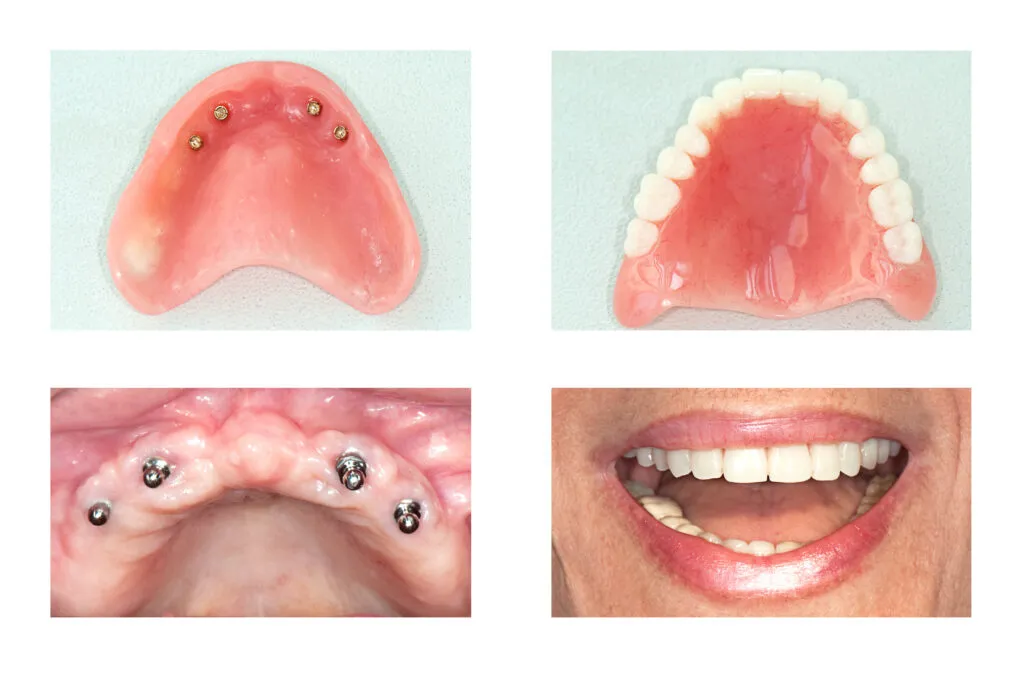Dental Implant Types

Implant types can be one of the following:.
1. Fixed implant replacing only the crown
When a single tooth is missing, the only implant, connector, and crown are necessary. After extraction of the tooth, the implant replaces the missing tooth space. Depending on the time of implant replacement, it is either immediate, immediate delayed, or delayed.
Immediate-loading Dental Implants
Implants are surgically placed immediately after the extraction of the tooth. Further, the dentist connects a connector to the implant. Finally, the temporary or permanent crown goes on top of the connector. The implant allows the function of teeth on the same day.
Pros
- Restores function and aesthetics on the same day
- One appointment to replace tooth
Cons
- Complications can need further re-treatment.
- More Costly
Immediate delayed loading of dental implants
Immediate loading is not possible in all cases. A periodontal or periapical abscess can limit the placement of the implant. At the end of the three-week period, healing of the tissue finishes before an implant placement.
Pros
- More predictable healing of Implants
Cons
- Need two or more surgeries
- Restoring function and aesthetic is delayed
Delayed-loading dental implants
Delayed loading allows a three-six-month delay to complete healing of the extraction site. The dentist places an implant into the healed bone. The healing of the implant is more predictable.
Pros
- The healing of the implants is well planned and predictable.
- Less complicated than immediate loading
Cons
- Three-six months delay is restoring function and aesthetics
- Two or more surgeries needed
2. Fixed dental implant replacing gums and the crown.
When a severe bone is missing in the jaw, it is necessary to replace the gum along with the tooth. An implant replacing gum and crown is essential in such conditions.
3. Fixed dental implant retained bridge
Placing two implants and a bridge connecting the two implants replaces multiple missing teeth in an arch.